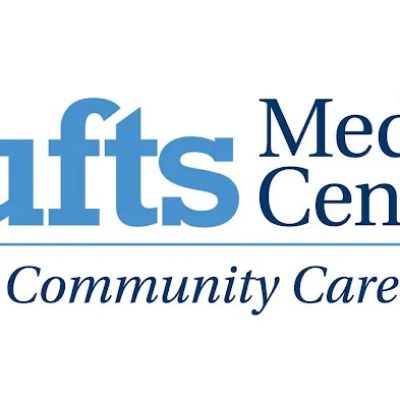How to Understand Heart Disease Treatment Outcomes
When I first learned about heart disease and the different treatments available, I was overwhelmed by all the information. Heart disease affects millions of people, and understanding treatment outcomes is crucial for anyone navigating the process of recovery. From medications to surgical procedures, the road to recovery can vary greatly from person to person. But over the years, I’ve come to understand that knowing what to expect, monitoring progress, and adjusting to changes is key to achieving the best possible results. Let’s dive into the different aspects of heart disease treatment outcomes and how you can better understand them, no matter what stage of treatment you're in.

1. Types of Heart Disease Treatments
There are many treatments for heart disease, and understanding them can help set realistic expectations. I’ve learned that the treatment plan will largely depend on the type of heart disease you have. For example, if you have coronary artery disease, treatments may involve lifestyle changes, medications, or procedures like angioplasty or bypass surgery. Each of these options has different outcomes, so it’s important to understand the full scope of your treatment options and how they align with your health goals.
In my case, I went through a process of lifestyle changes, medication, and then ultimately, a surgical procedure. At each step, I was closely monitored to assess my progress and adjust my treatment plan as needed. But, before we dive into what to expect in terms of outcomes, let’s look at the most common heart disease treatments:
- Lifestyle Changes: These can include changes to your diet, increasing physical activity, reducing stress, and quitting smoking.
- Medications: Drugs such as statins, beta-blockers, and blood thinners are used to manage blood pressure, cholesterol, and prevent blood clots.
- Interventional Procedures: These include angioplasty, stent placement, and other minimally invasive surgeries.
- Surgical Options: In severe cases, bypass surgery or valve repair/replacement may be required to improve heart function.
2. Measuring Success in Heart Disease Treatment
When it comes to understanding treatment outcomes, the first thing I had to realize was that success isn’t always defined by an immediate cure. In fact, heart disease is often a lifelong condition that requires ongoing management. One of the first signs of success is the stabilization of symptoms. For instance, I noticed improvements in my energy levels, fewer chest pains, and better overall stamina after starting my treatment plan.
Doctors typically look at several factors to measure the success of heart disease treatments. Some key factors include:
- Symptom Reduction: If you experience fewer or less severe symptoms, such as shortness of breath or chest pain, it indicates that the treatment is working.
- Improved Heart Function: Regular testing, such as an EKG or echocardiogram, helps doctors assess how well your heart is functioning. Improvement in these results suggests a successful treatment outcome.
- Lower Risk Factors: Effective management of cholesterol levels, blood pressure, and blood sugar shows that your treatment is helping reduce the risk of further complications.
3. The Role of Recovery in Treatment Outcomes
Recovery is an essential part of understanding heart disease treatment outcomes. Even after surgery or a major intervention, recovery time can vary, and it’s important to monitor progress during this period. When I had surgery, my doctors stressed the importance of taking it slow. During the recovery phase, I had regular follow-ups to ensure I was healing properly and adjusting well to the changes in my lifestyle and medication. This period also allowed me to work with physical therapists to rebuild my strength and stamina gradually.
During recovery, I was encouraged to make gradual lifestyle changes, like increasing exercise and following a heart-healthy diet. The outcome wasn’t just about surviving the procedure but about building a foundation for long-term health. The longer I followed these steps, the better my results became. It’s vital to remember that while surgical interventions might offer immediate results, the key to long-term success lies in consistent effort toward recovery and overall health management.
Atlanta Heart Specialists
atlanta heart specialists
4375 Johns Creek Pkwy #350, Suwanee, GA 30024, USA

4. Psychological Aspects of Heart Disease Treatment
One of the things I didn’t anticipate was the psychological impact of undergoing heart disease treatment. After my procedure, I noticed feelings of anxiety and uncertainty. What if the treatment didn’t work? What if my symptoms returned? Over time, I learned that these feelings were natural, and I was not alone. It’s important to address not only the physical aspects of recovery but also the mental and emotional factors.
For many, the psychological burden of heart disease can influence recovery outcomes. I found that engaging in therapy or support groups helped me manage stress and cope with any feelings of depression or anxiety. A positive mental attitude can significantly improve your physical recovery, and I encourage anyone undergoing treatment to address mental health concerns as part of the healing process.
5. Long-Term Monitoring and Adjustments
One of the key aspects of heart disease treatment outcomes is the need for long-term monitoring. Heart disease is often a chronic condition, and the road to treatment isn’t always a straight line. After my initial recovery, I learned that continuous monitoring of my heart health was necessary to ensure my treatment plan remained effective. Regular check-ups, including blood tests, imaging, and heart function tests, help doctors identify any changes that need attention.
Over time, treatments may need to be adjusted, whether it’s changing medications or modifying lifestyle recommendations. For instance, I had to adjust my medication dosage a few months after my surgery, based on my test results. My doctors explained that it’s common for treatment outcomes to evolve, and it’s important to remain flexible and responsive to changes in your health.
6. The Importance of a Support System
Having a strong support system during heart disease treatment cannot be underestimated. I was fortunate enough to have my family and friends by my side during the process. Their encouragement and understanding helped me navigate the ups and downs of recovery. Support groups and counseling can also be valuable resources, as they provide emotional support and practical tips from others who are going through similar experiences.
Having people to lean on, whether they’re healthcare professionals or loved ones, makes a huge difference in how you feel about your treatment and recovery. It also provides a sense of accountability and encouragement, which can play a significant role in achieving better treatment outcomes.
7. Adapting Your Lifestyle for Long-Term Heart Health
Ultimately, understanding heart disease treatment outcomes comes down to the commitment to maintaining a heart-healthy lifestyle. Even after successful treatment, I realized that sustaining my health requires ongoing effort. A balanced diet, regular physical activity, stress management, and regular check-ups are all part of the equation. It’s about creating sustainable habits that support heart health for the long haul.
Heart disease treatment is not just a one-time event but an ongoing journey. By understanding what influences treatment outcomes, monitoring progress, and adapting to changes in your health, you can maximize your recovery and lead a long, healthy life. I’ve come to appreciate the importance of these steps, and I encourage everyone going through treatment to take them seriously. Your heart health is worth it.






















Deborah Heart and Lung Center
deborah heart and lung center
200 Trenton Rd, Browns Mills, NJ 08015, USA